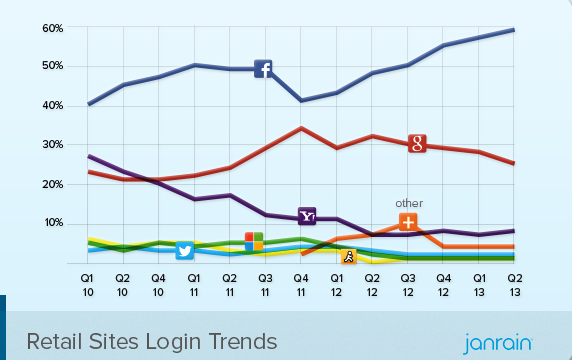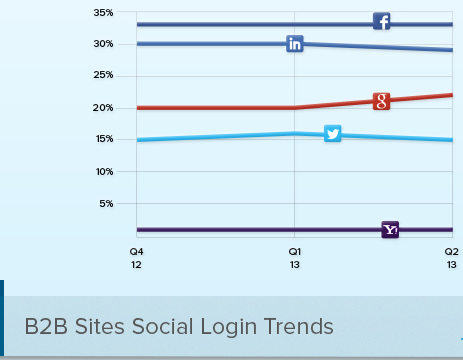It might be difficult for traditional marketers to understand how social networks present distinct opportunities for engagement and conversions, but the latest login data from Janrain demonstrates this exact idea. The internet marketing world has fractured and new businesses have worked hard to carve out unique identities where members do more than post on each others’ wall and scroll through digital photo albums.
Brands that hedge their bets on the right networks will connect with prospects and nurture leads to conversions, while disengaged companies will struggle to spark meaningful conversations with customers.

The data from Q2 2013 showed that 87 percent of internet users opt-in to registration forms with their social media profiles to avoid filling out forms registration components time and time again. Facebook is the go-to choice for 46 percent of people, followed by Google with 34 percent, Yahoo with 7 percent and Twitter with 6 percent. However, these findings are more than indicators of the forums where users don’t mind receiving branded content and company updates. The figures point to ways people segment the networks by category (entertainment, business, retail) and suggest where brands might have the most success engaging them.

B2C marketers should target their customers on Facebook, but not Google, because the social network login is used by 60 percent of people visiting retail sites, while the search engine giant dropped to the 25 percent baseline. Conversely, B2B brands should increasingly consider Google and its social branch, Google+, as a contender because the channel is gaining ground on leaders LinkedIn and Facebook for social logins.
Brafton previously reported that marketers must dig deeper to truly reap the benefits of audience targeting on social networks. A Pew Internet and American Life Project report revealed that 6 percent of internet users are on Reddit, but they are primarily young males between the ages of 18 and 29. This demographic will have different social media content expectations than an older group on LinkedIn looking to conduct professional research.





